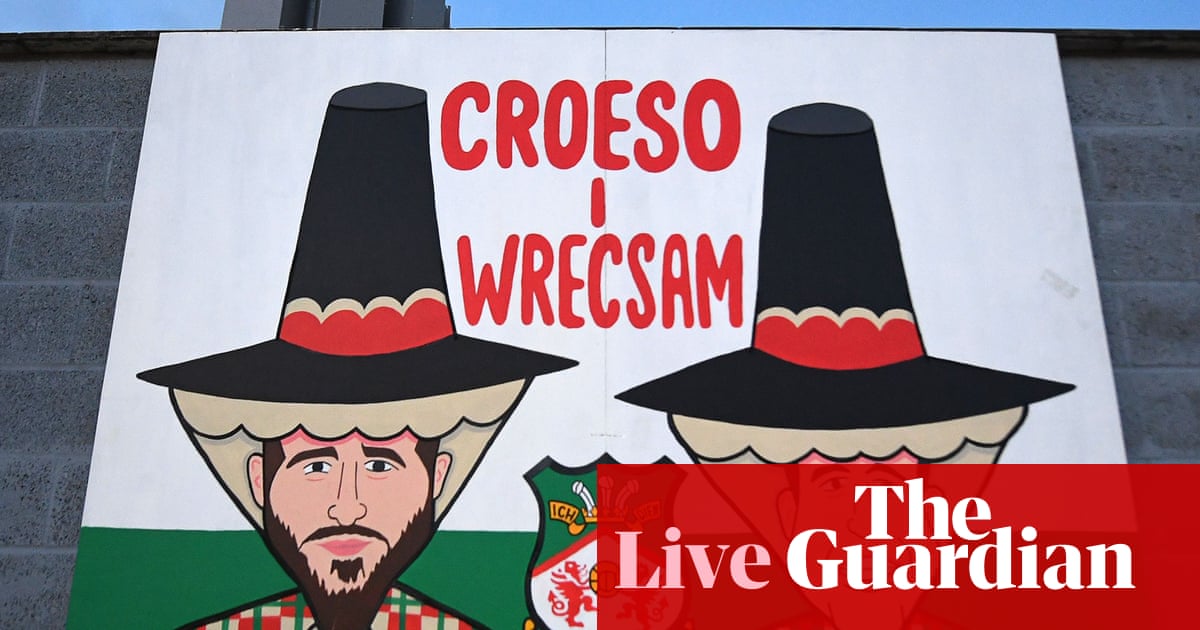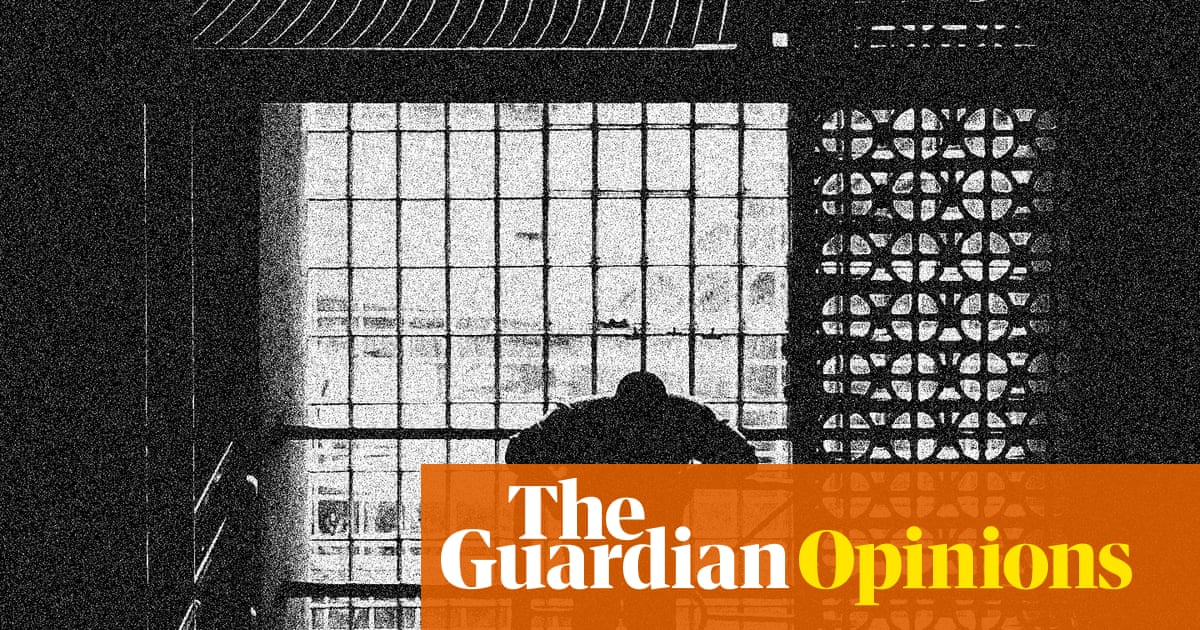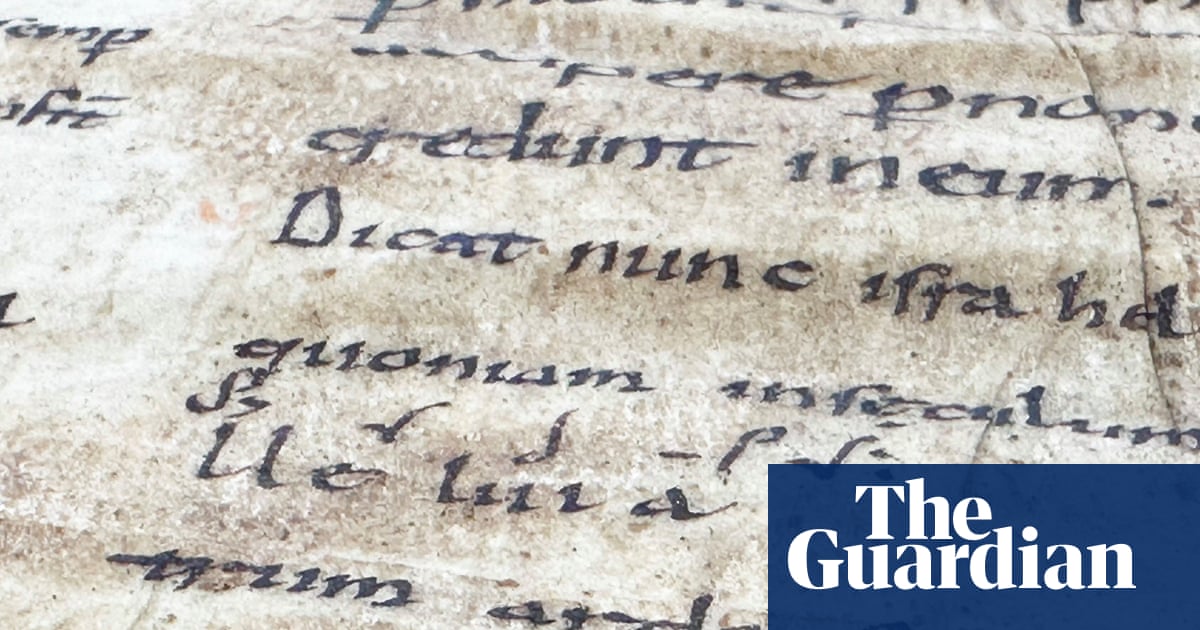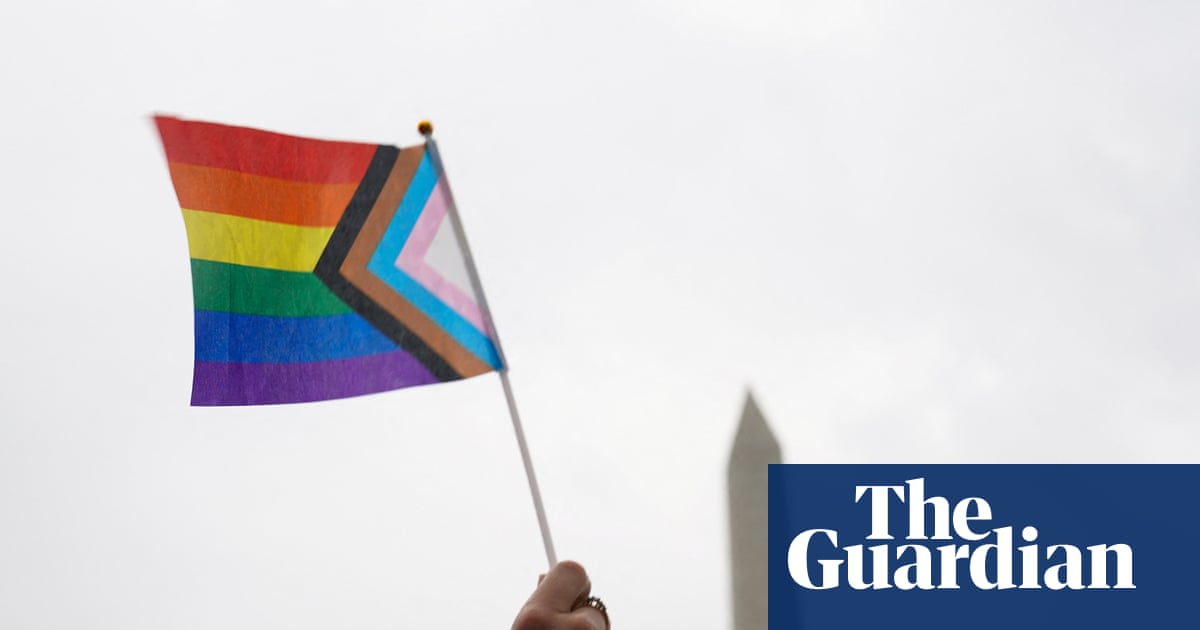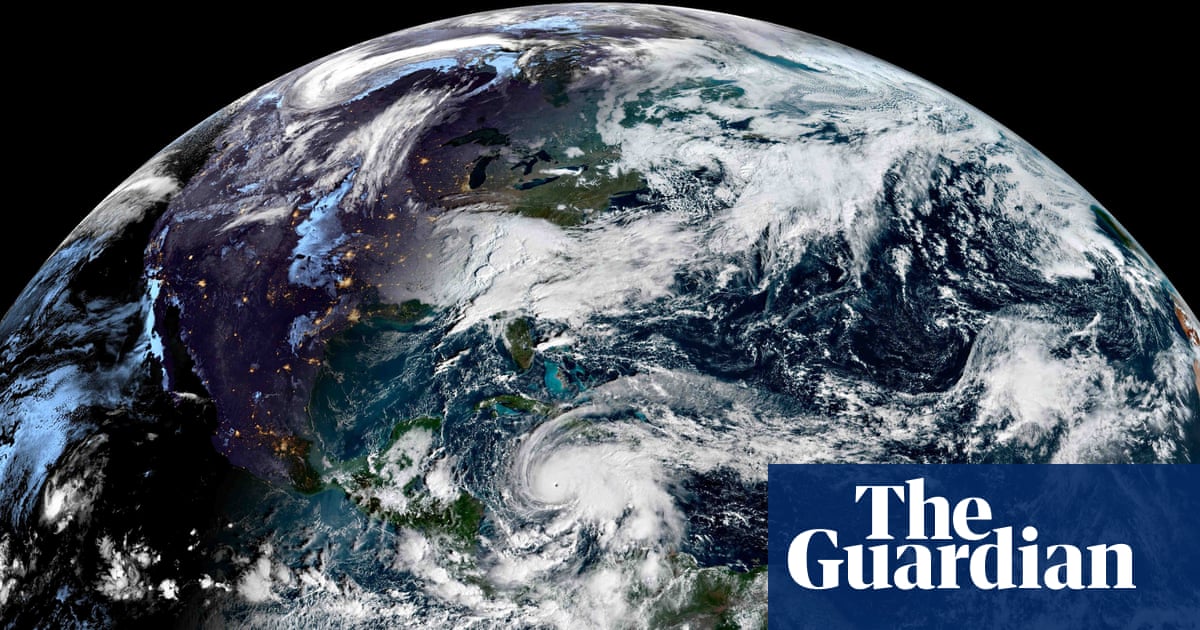Food is both deeply personal and political for Sami Tamimi, the Palestinian chef and food writer, whose first solo cookbook is an emotional culinary ride down memory lane through the bountiful seasons of his homeland – and an effort to preserve the ingredients, techniques and traditions which have long been targeted by the Israeli occupation.
Boustany: A Celebration of Vegetables from My Palestine is a masterclass on how less is so often more when it comes to creating food that connects with people and how the joy derived from cooking and sharing food can, in itself, be an act of resistance.
“As a chef and writer this is a political act, a way to show young Palestinians who weren’t born there the deep emotional connection we have to the land, to the food of our land, and how Palestine used to be,” Tamimi said. “This is me being resilient as a Palestinian but also recognizing that I am privileged to have a voice and talking about our food is a way of keeping it alive.”
Each recipe – from tahini, halva and coffee brownies to green kishk (fermented yoghurt and bulgar) and Gazan dukkah (a spice mix for dipping) - speaks to how much Palestinians love to forage, cook, preserve, host and eat food. It’s a core part of the culture and heritage that Tamimi hopes to help broaden the world’s understanding of.
“Our dishes are being claimed by some Israeli chefs and so many native ingredients – lentils and sesame and greens – that I remember foraging for with my family are starting to disappear as access to our land shrinks. But this is our food, this is our history, our culture. You can’t take my memories away from me. You can’t tell me that this is not my land,” said Tamimi.
Tamimi was born and raised in the Old City of Jerusalem, and grew up foraging in the surrounding hills with his parents for herbs, berries and greens – ingredients his mother would then use to create honest, simple dishes that were mostly vegetarian.
After a long stint as head chef at Lilith, a fine dining establishment in Tel Aviv, Samimi moved to London in 1997 at the age of 29 to work at Baker & Spice, where Yotam Ottolenghi, then a young pastry chef who grew up in the Jewish part of the Old City, also landed. The pair went on to create a hugely successful culinary enterprise including several restaurants in central London and together co-wrote the bestselling cookbooks Ottolenghi (2008) and Jerusalem (2012).
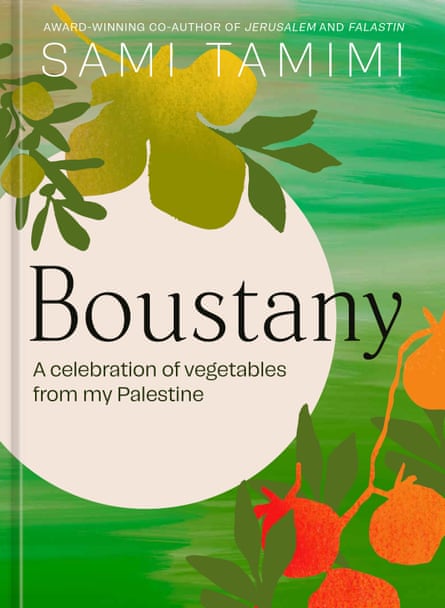
In 2020, Tamimi co-wrote Falastin (2020), a love letter to Palestine’s ancient, diverse culinary traditions – and the people who have preserved the food amid unbearable losses.
He rediscovered a passion for foraging in Umbria, Italy, which has a similar climate to Palestine, and began recreating dishes from his homeland to stave off homesickness during the Covid pandemic. This helped sow the seed for Boustany, which means “my garden” in Arabic, that is steeped in childhood memories of staying at his grandparents’ home in Hebron in the southern West Bank, where the garden they tended with love delivered a bounty of fruits and vegetables each season.
“The majority of our cuisine is based on vegetables, grains and pulses, and for me the whole process of cooking vegetarian food connects me back to the environment, to the land, to simple dishes – that could be just a bit of chard with some mackerel and a bit of onion and garlic,” he said. “It’s simple, not gimmicky, but really flavorsome and colorful and brings comfort because it connects me back to my family, to my heritage and all those beautiful memories. It was going to be a vegan cookbook but I couldn’t give up on cheese and eggs – especially for making sweets.”
The 70-year plus Israeli occupation and expansion into Palestinian territories has severely restricted access to land, and foraging some native plants is actually banned by the Israeli state for Palestinians, while it fills the market with cheap Israeli alternatives. Olive trees, central to Palestinian identity, are frequently burnt and chopped down by Israeli settlers in the West Bank; irrigation systems and wells are contaminated and destroyed; and for years fishermen in Gaza have been denied access to Palestinian waters – and targeted with violence.
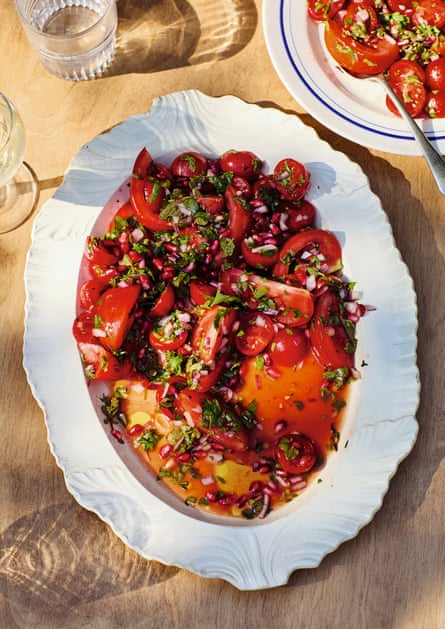
Preservation is an arc of this book, a deliberate though unsaid theme at a time when Palestinian food, land and culture are under unprecedented assault. This includes a pantry, or mooneh, chapter, a unique concept to Middle Eastern cooking, especially Palestinian and Levantine cuisine. Mooneh involves preserving (pickling, freezing, fermenting and bottling) seasonal products such as nuts, herbs, fruits, pulses and vegetables so they can be enjoyed throughout the year.
But the book also looks forward, with new twists to traditional recipes inspired by Tamimi’s travels and evolution as chef over the past four decades. “For me it’s more important to take the essence of a traditional dish and build on it, by adding the layers and the texture,” he said. “But you shouldn’t play with the dish too much to ruin it.”
Tamimi was in the final stretch of writing Boustany when Israel launched its unprecedented and relentless military assault on Gaza – in retaliation for Hamas’ attack on 7 October 2023. Israel has since razed the tiny territory, targeting the farmland, forests, olive orchards and greenhouses to stop Gazans from producing their own food while blocking humanitarian supplies – which together has put 2 million Palestinians on the brink of starvation.
Last month, a French historian who made it into the territory to document the horrors hidden from foreign journalists reported that he saw starving children sharing bits of food with scrawny stray cats.
“Palestinian people are full of life, they always want to make you welcome and will push food on your plate just to make sure that you are well fed, happy and comfortable,” Tamimi said. “It’s horrendous for people that always celebrated life and food and seasonality and feeding people to be stripped from all of that, and for it to be used as a weapon against them.”
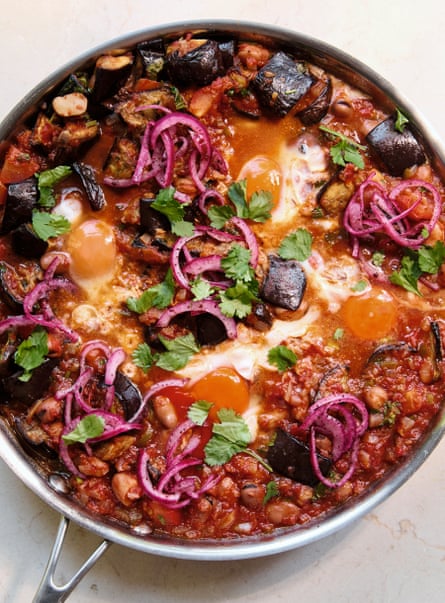
Palestinian recipes always have a local spin. For example, the cuisine in Gaza was uniquely influenced by its proximity to Egypt, so dishes are spicier, and the falafel is often made with fava beans instead of just chickpeas. Gaza’s version of knafeh – a popular dessert that combines crispy pastry, sweet cheese and fragrant syrup – includes walnuts and sometimes bulgar or couscous. The seafood enjoyed in Gaza before Israel’s total siege – like crab and squid – are hard to find in other parts of Palestine, and the strawberries there are the sweetest, said Tamimi.
“There is another side to Palestinians that I want to show in the book. They want to eat and enjoy life, they want to live life to the max. Through food and these dishes I can connect with people who want to know more about Palestine and Palestinian culture. If there is something positive, with all the horrible stuff happening now, it is that it has opened people’s eyes.”
-
Boustany: A Celebration of Vegetables from My Palestine, is available in the US and UK through Penguin Random House

 3 months ago
72
3 months ago
72







